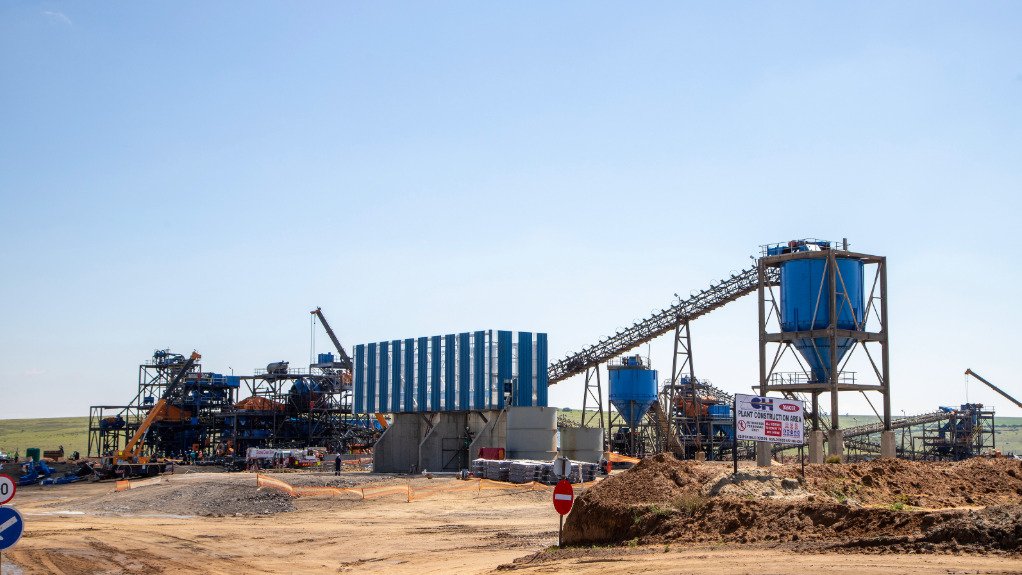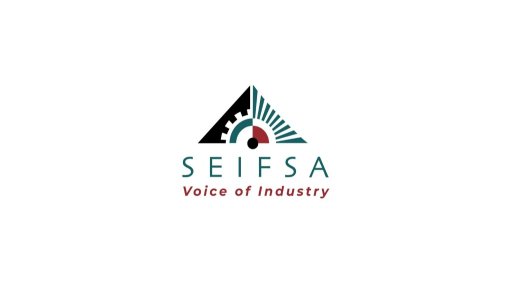Filter press aids in water sustainability


SUSTAINABLE TECHNOLOGY Upgrades to the Gugulethu plant are designed to promote the sustainable use of water
Coal exploration and mining company Canyon Coal reports that its newly commissioned 40 t/h filter press at its Mpumalanga-based Gugulethu mine is assisting in improving its sustainable use of water.
Canyon Coal developed the Gugulethu mine as a greenfield operation within 12 months and extracted its first coal within the first few weeks of this year, and it intends to continue development of the mine with the commissioning of a 400 t/h processing plant.
Canyon Coal COO Jarmi Steyn indicates that the installation of a filter press forms part of the Gugulethu plant upgrade, emphasising the need to have measures in place to advance effective water management practices.
“The filter press uses high-pressure dewatering technology to separate water from solid waste materials. Having a filter press is proven to be one of the best ways to process slurry efficiently and conserve water,” she explains.
Steyn adds that efficient slurry processing also leads to a reduction in contamination risks, noting that, once separated from solids- containing tailings water, filtered process water can be reused for beneficiation and dust suppression applications at the mine.
Prior to the issuing of a water-use licence for the mine, Canyon Coal undertook specialist studies on the surrounding wetlands and biodiversity, leading to the creation at the mine of a 200 m buffer zone to protect the surrounding Klein Olifants water course.
Steyn says that Canyon Coal has a competent environmental team that oversees the effects of its operations, also ensuring that the company complies with relevant environmental legislation.
She also tells Mining Weekly that the Gugulethu mine is continuing to expand production operations with the aim of reaching steady-state production before the end of this year.
In this regard, the processing plant has progressed through cold commissioning to ensure that all the components, such as gearboxes and pumps, are working properly. “This was followed by hot commissioning with coal and water,” Steyn highlights.
The company expects to produce an estimated 200 000 t of run-of-mine coal a month, to be processed for export markets.
Article Enquiry
Email Article
Save Article
Feedback
To advertise email advertising@creamermedia.co.za or click here
Press Office
Announcements
What's On
Subscribe to improve your user experience...
Option 1 (equivalent of R125 a month):
Receive a weekly copy of Creamer Media's Engineering News & Mining Weekly magazine
(print copy for those in South Africa and e-magazine for those outside of South Africa)
Receive daily email newsletters
Access to full search results
Access archive of magazine back copies
Access to Projects in Progress
Access to ONE Research Report of your choice in PDF format
Option 2 (equivalent of R375 a month):
All benefits from Option 1
PLUS
Access to Creamer Media's Research Channel Africa for ALL Research Reports, in PDF format, on various industrial and mining sectors
including Electricity; Water; Energy Transition; Hydrogen; Roads, Rail and Ports; Coal; Gold; Platinum; Battery Metals; etc.
Already a subscriber?
Forgotten your password?
Receive weekly copy of Creamer Media's Engineering News & Mining Weekly magazine (print copy for those in South Africa and e-magazine for those outside of South Africa)
➕
Recieve daily email newsletters
➕
Access to full search results
➕
Access archive of magazine back copies
➕
Access to Projects in Progress
➕
Access to ONE Research Report of your choice in PDF format
RESEARCH CHANNEL AFRICA
R4500 (equivalent of R375 a month)
SUBSCRIBEAll benefits from Option 1
➕
Access to Creamer Media's Research Channel Africa for ALL Research Reports on various industrial and mining sectors, in PDF format, including on:
Electricity
➕
Water
➕
Energy Transition
➕
Hydrogen
➕
Roads, Rail and Ports
➕
Coal
➕
Gold
➕
Platinum
➕
Battery Metals
➕
etc.
Receive all benefits from Option 1 or Option 2 delivered to numerous people at your company
➕
Multiple User names and Passwords for simultaneous log-ins
➕
Intranet integration access to all in your organisation



















